The Importance of Keeping a School Clean
Information and solutions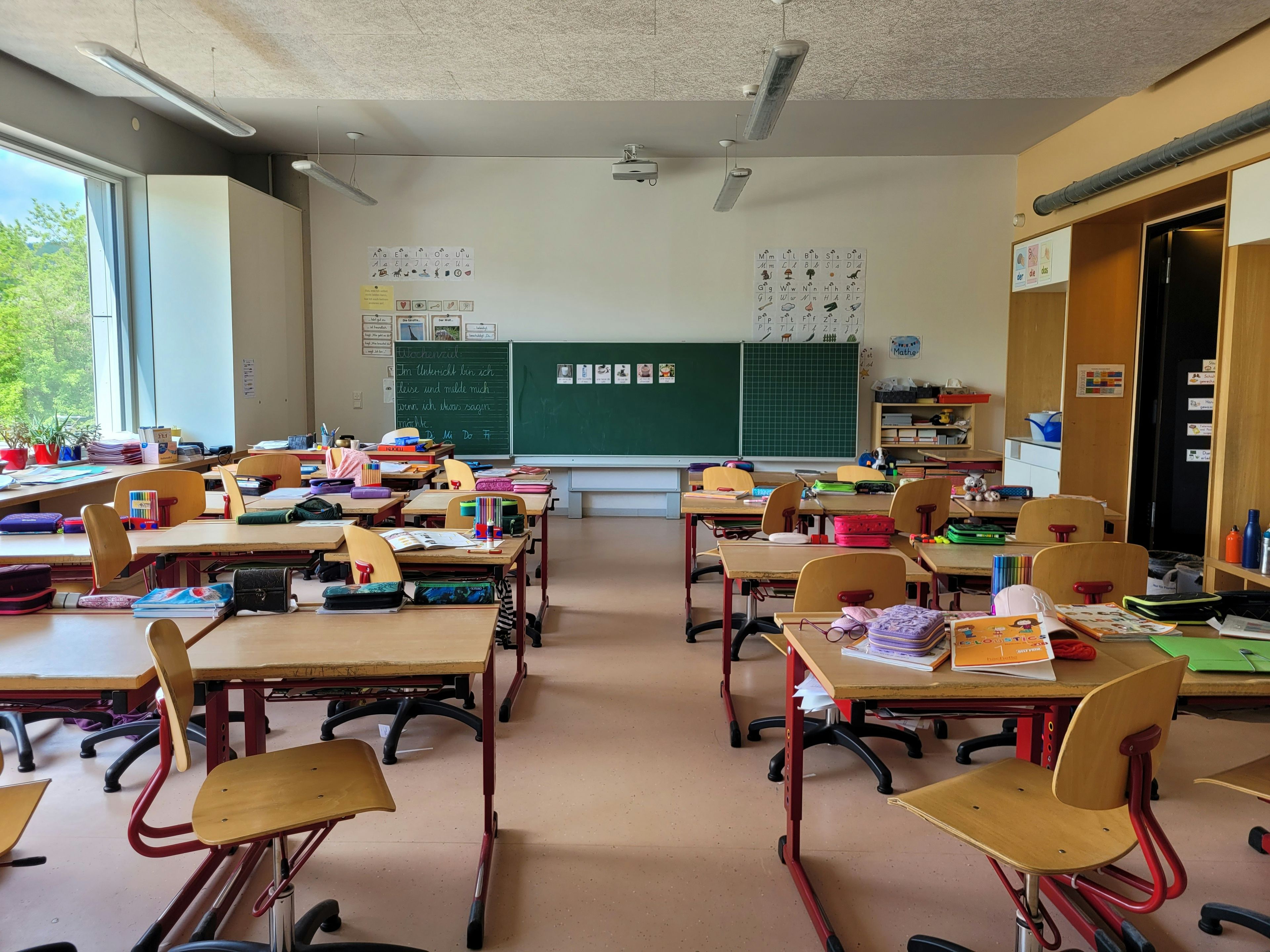
A clean school contributes greatly to student health, academic success, and overall well-being. Studies show that secondary schools generate an average of 22 kilograms of waste for each student annually, while primary schools produce 45 kilograms per student.
The truth is, unclean school environments contribute to the spread of illnesses, reduced concentration, and lower morale among students and staff. A clean school goes a long way in fostering a sense of pride, responsibility, and environmental awareness among young Aussies, and it begins with proactive measures from teachers and administrators.
In this blog, we’ll look at the importance of school cleanliness and highlight some measures schools can take to foster a clean and responsible student mentality.

Students talking about zero waste practices
The 5 Major Importance of School Cleanliness
Health and Hygiene Benefits
Schools are breeding grounds for bacteria and viruses. With hundreds or even thousands of students interacting daily in sports, classes, and extracurricular, germs can spread at a faster-than-usual rate.
Regular cleaning and disinfection help limit the transmission of illnesses such as colds, flu, and stomach bugs among students. It’s important to regularly sanitise high-touch surfaces like doorknobs, desks, and shared equipment to minimise the risk of infection.
Additionally, dust, mould, and allergens can accumulate in classrooms, leading to respiratory issues like asthma. Proper ventilation and routine cleaning help maintain clean air and a healthier environment for students and staff.
Here are some practical tips to reduce the spread of germs, improve air quality, and encourage good hygiene habits in schools:
- Implement daily cleaning schedules with a cleaning company, particularly for high-contact surfaces.
- Educating students on how to wash hands with informative posters and hygiene campaigns.
- Ensuring classrooms and common areas are properly ventilated.
- Planting more trees and plants in schools and classrooms.
- Providing hand sanitising stations in key areas such as entrances, cafeterias, and classrooms.
- Regularly deep-clean carpets and upholstery to reduce dust buildup.
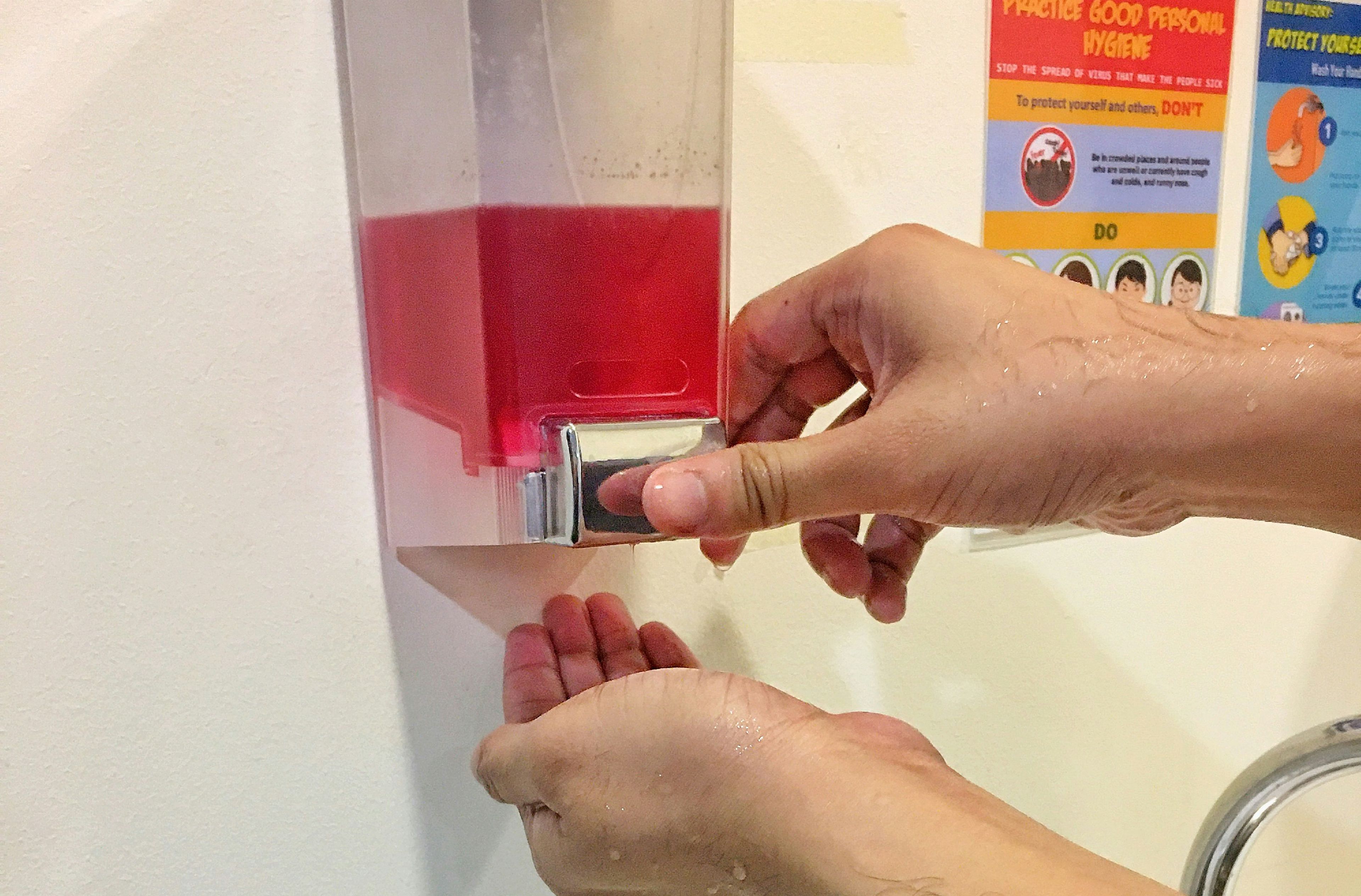
Students washing his hands
Promotes a Better Learning Environment
A cluttered, dirty environment can be highly distracting for students. Studies indicate that clean, organised schools can produce better student performance, increase morale, and improve attendance. For teachers, a tidy classroom fosters a sense of order, making it easier to focus on teaching the lessons and their students.
Here’s what a clean learning environment looks like:
- Organised classrooms with designated spaces for books, supplies, and personal belongings.
- Clean, brightly-lit hallways and common areas.
- Regular removal of rubbish to prevent any unpleasant odours.
- Proper labelling of bins for waste separation, encouraging responsible disposal habits.
- Routine desk and chair sanitation for a more hygienic learning space.
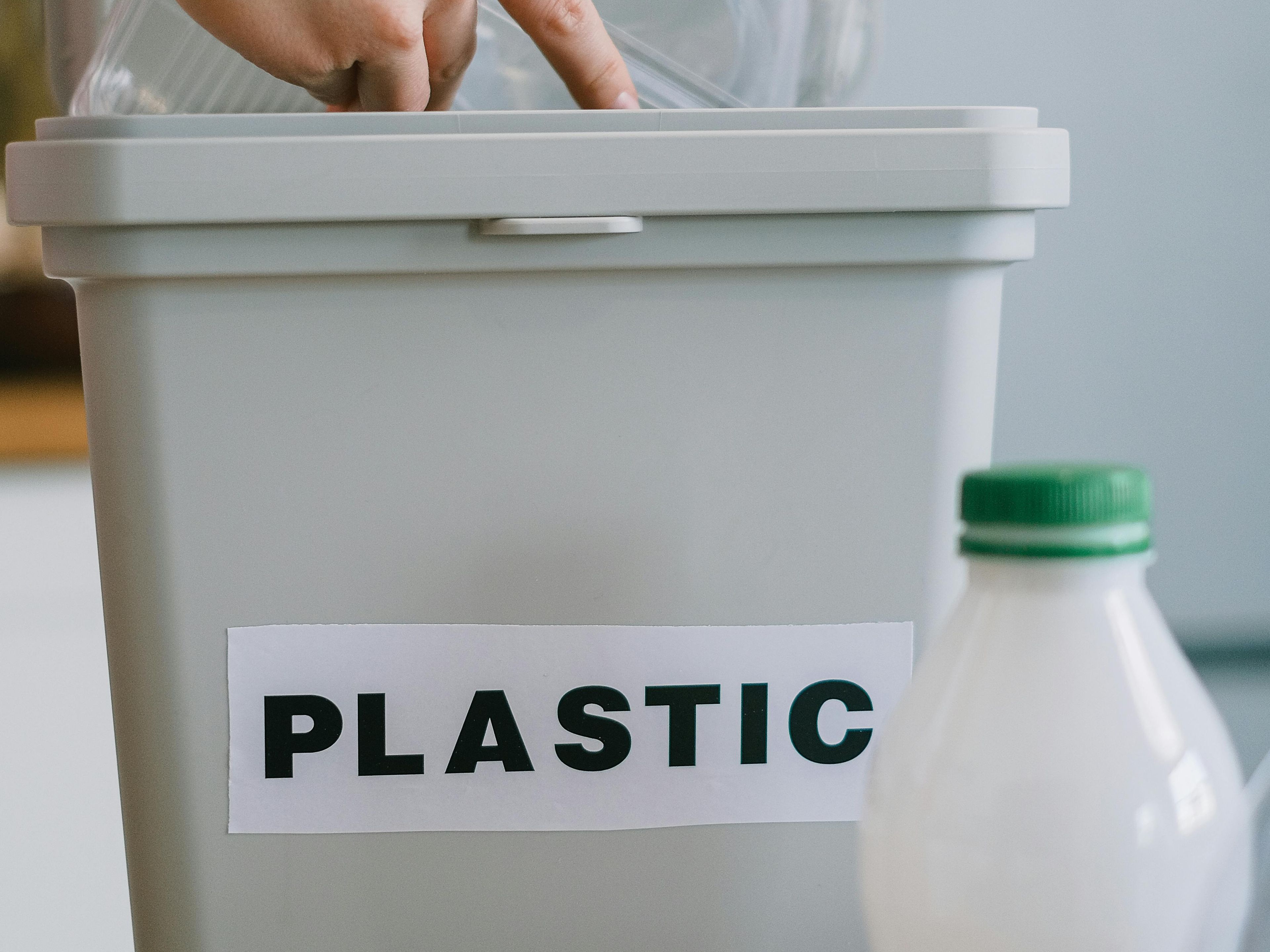
Bin labelled with plastic tag
Instills Responsibility and Environmental Awareness
Teaching students about cleanliness instills lifelong values of responsibility and environmental sustainability. When students take part in keeping their school clean, they develop respect for shared spaces and understand their role in taking care of the environment.
Recycling and cleaning programs within schools can provide practical lessons to students in waste management and sustainability. Additionally, students can learn about their environmental and landfill impact by being taught proper waste-sorting initiatives.
Here are some ways to encourage students participation and responsibility in keeping schools clean:
- Organising student-led cleaning initiatives, such as weekly classroom tidying duties.
- Hosting and getting students involved in educational workshops on sustainability and proper waste disposal.
- Implementing recycling stations in visible areas with clear labelling to encourage waste sorting.
- Encouraging students to take part in composting programs for organic waste.
- Promoting upcycling projects where students repurpose materials into useful items.
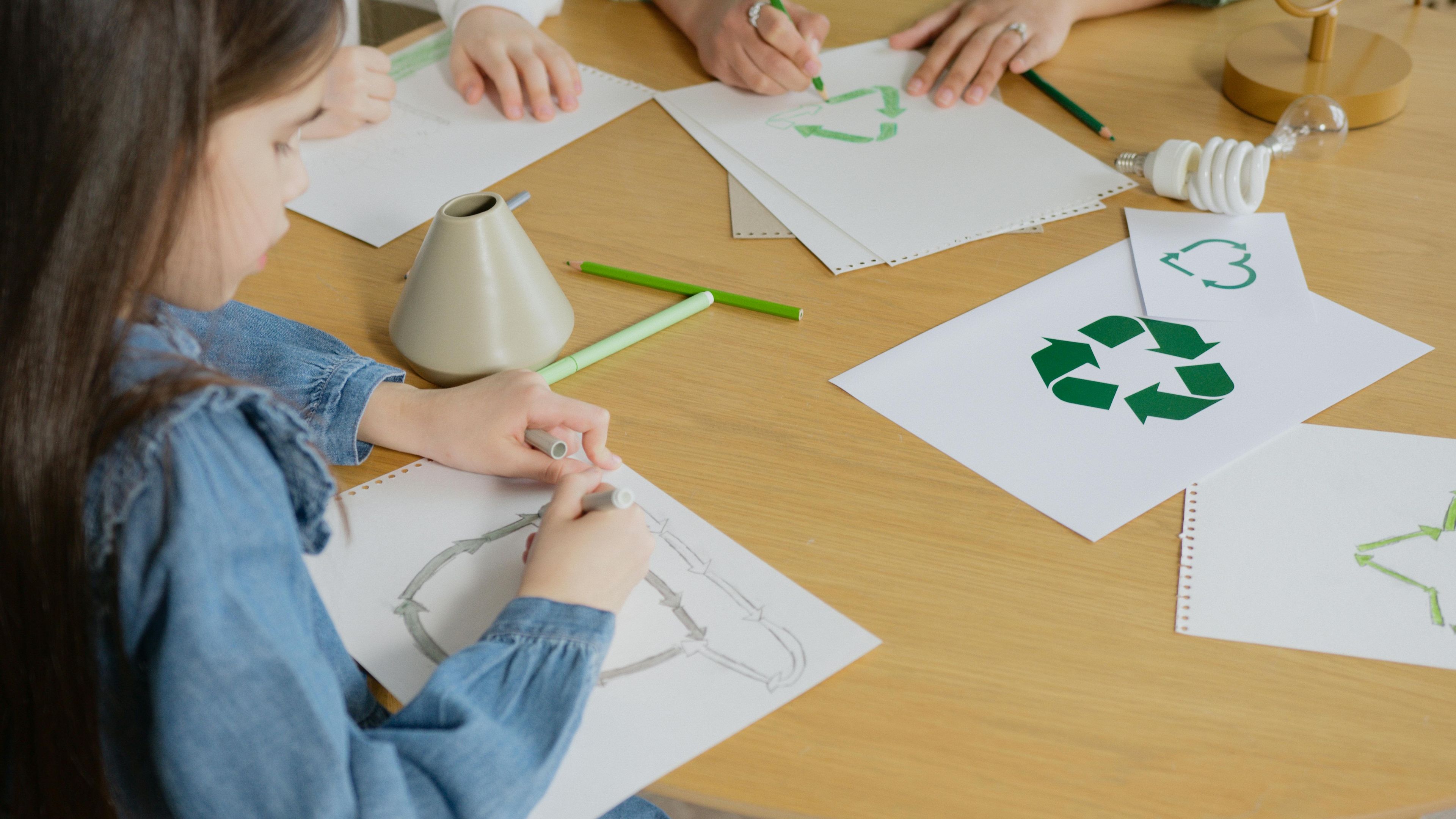
Recycling activities at school
Prevents Pest Infestations and Structural Damage
A dirty school can attract pests, leading to serious health risks. Food scraps left in overflowing trash bins are an ideal environment for rodents and insects, causing diseases to spread and triggering allergies.
Structural maintenance is another critical aspect of school cleanliness. Blocked gutters, accumulated debris, and mould growth can lead to costly repairs and safety hazards. Schools that don’t comply with government safety and cleaning regulations can be fined and suffer reputational damage, so it's important to schedule routine cleaning and maintenance.
Here are some preventative measures that school administrators can take to prevent pest and structural problems:
- Properly dispose of food waste in sealed and fully covered bins.
- Conduct regular inspections and cleaning of drains, gutters, and storage areas.
- Conduct pest control programs to manage and prevent infestations.
- Encouraging students to clean up after themselves after using a space or report any damage.
- Using eco-friendly pest deterrents to minimise environmental impact.
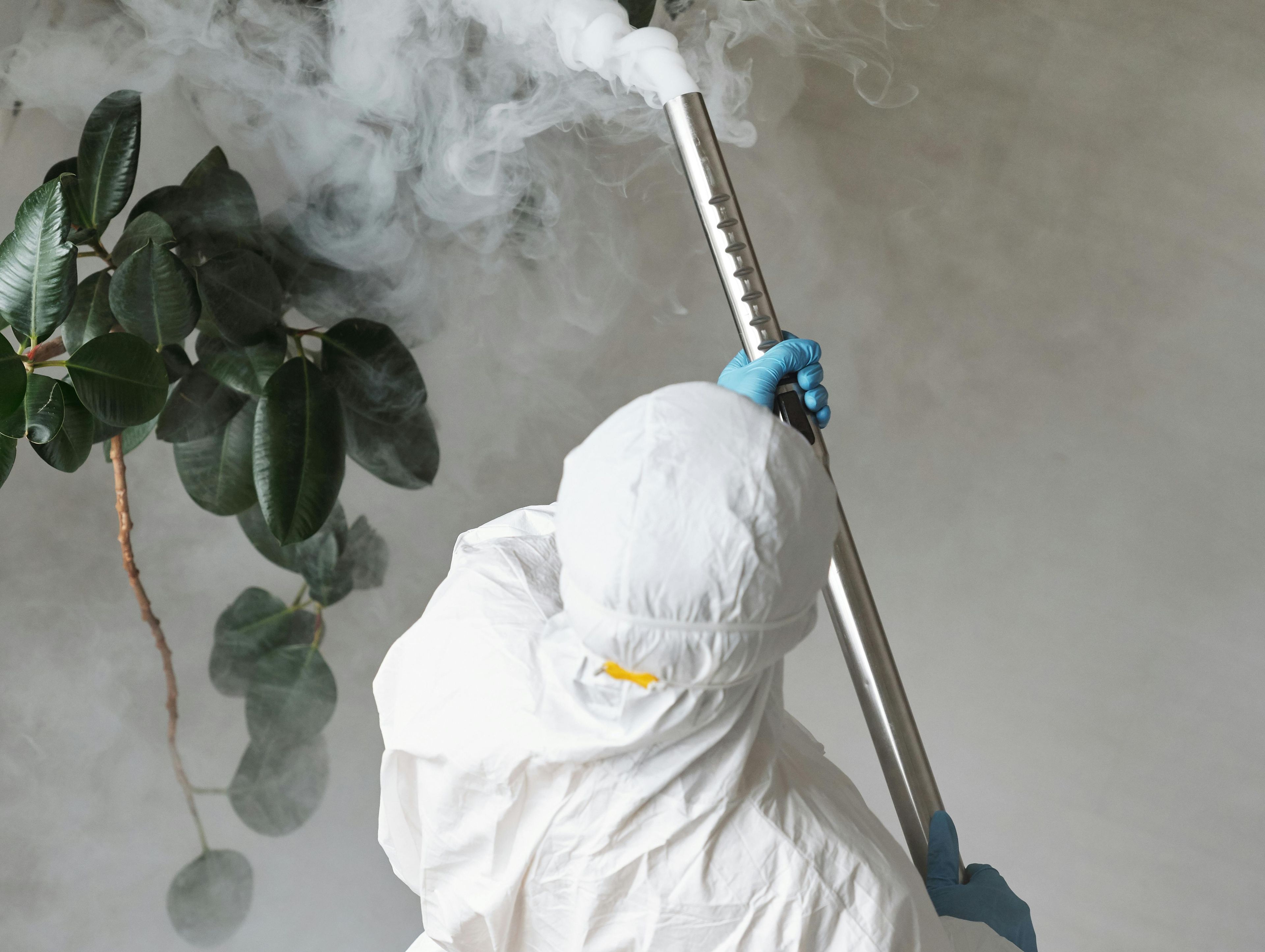
Pest control
Boosts School Pride and Morale
A clean school improves staff and student morale while fostering a sense of community. When all school members take responsibility for their classroom and surroundings, they are more likely to respect and maintain the space.
Additionally, a well-kept campus creates a positive impression on visitors, prospective students, and parents. Cleanliness reflects the positive values of the school and reinforces a culture of environmental responsibility.
Schools and teachers can implement various programs to promote school pride.
- Hosting school-wide clean-up events involving students, staff, and parents.
- Recognising and rewarding classrooms that maintain cleanliness.
- Encouraging student-led initiatives to beautify school gardens.
- Decorating classrooms with students' artwork or sustainability-themed projects.
- Developing healthy cleanliness competition among classrooms to build awareness and pride in maintaining their environment.
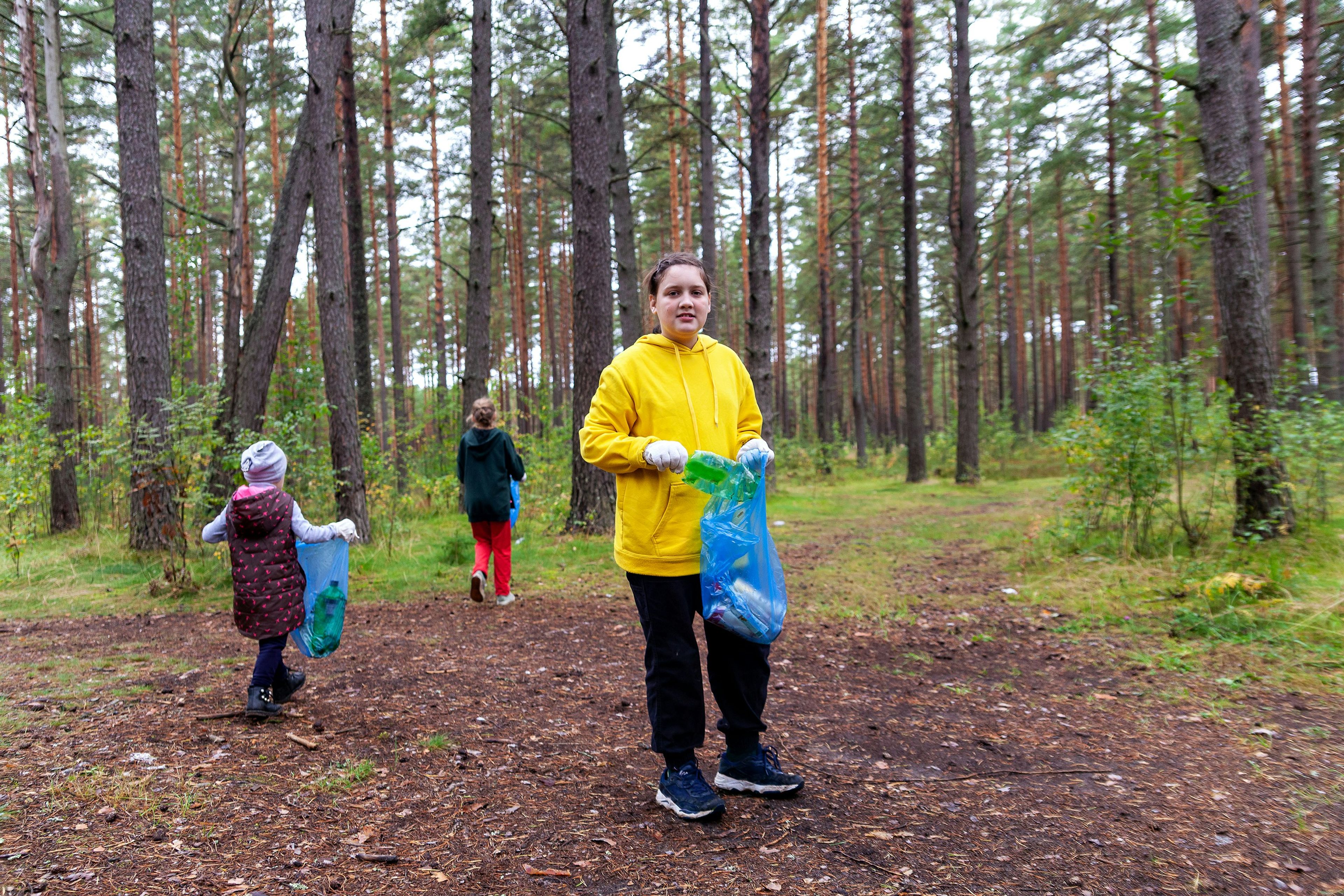
school-wide clean-up
Key Takeaway: Cleanliness Is a Shared Responsibility
Maintaining a clean school is a collective effort from students, teachers, and administrators. With plastic and organic waste making up a significant portion of schools' rubbish bins, sustainability initiatives and partnerships should be cultivated to prevent these wastes from going to landfills.
At Clean Vibes, we work together with schools to ensure a safe, productive, and welcoming space. Whether conducting waste management audits, handling school event clean-ups, or providing sanitisation, we champion sustainability by ensuring all plastic waste is recycled and kept out of landfills.
Clean Vibes also partners with the Container Deposit Scheme (CDS) in Victoria and NSW, providing pickup and drop-off of CDS bins at schools in selected areas. With our service, schools benefit from a 10c refund for every eligible container, including plastic and glass bottles, aluminium cans, and cardboard juice boxes. We handle everything from pickup to processing and provide schools with a CDS bin delivery service to ensure containers are efficiently sorted and sent to the nearest depot.
Contact our team to learn more about our services.
Contact us